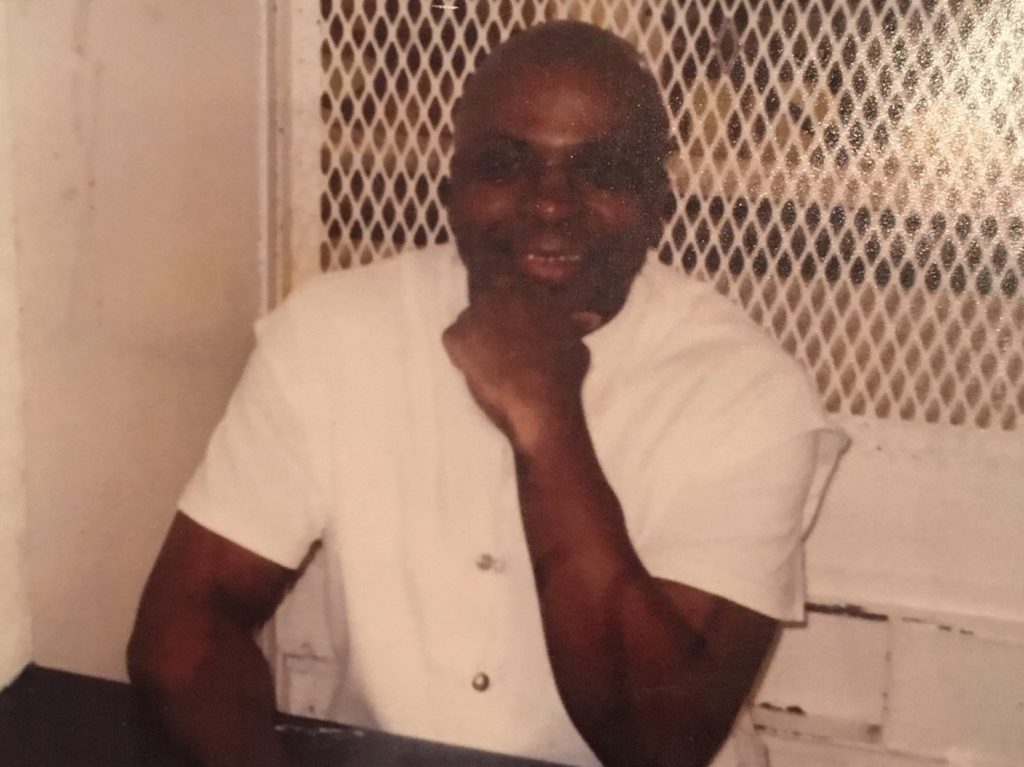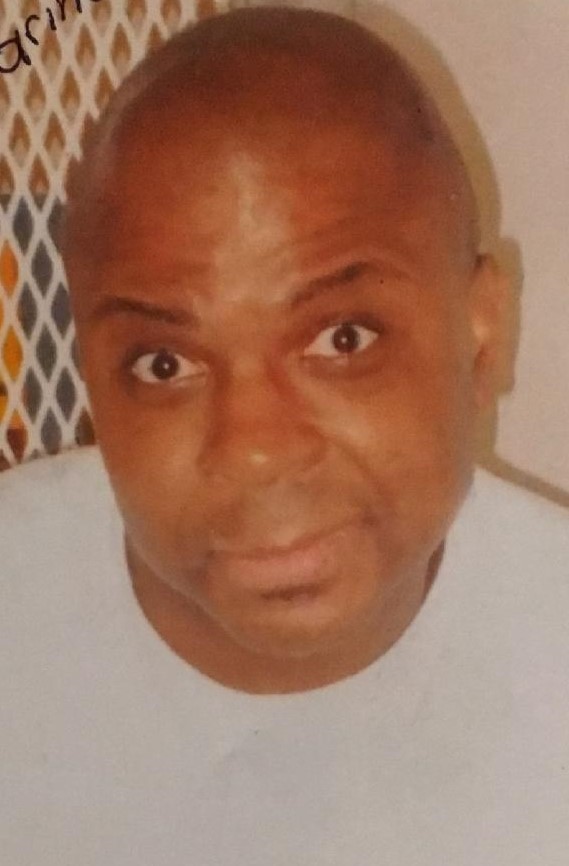Someone familiar with the Mamou case recently said to me, “He’s on death row because he’s black and it was Harris County.” One has to wonder, in a capital case with no evidence and the state’s own witnesses contradicting their theory…

To pretend ‘black’ and ‘white’ doesn’t and hasn’t influenced the outcome of a lot of our history, would be irrational. It’s more comfortable not to talk about, but when a person is going to get executed in a case that was built on the contradictory testimony of a handful of people who all benefited from their testimony – maybe it’s time to talk about ‘it’.
It is possible ‘it’ played a part in the story of Charles Mamou, who was sentenced to death twenty years ago. We aren’t where we need to be today, and to pretend we were two decades ago would not be reality.
So, twenty years ago in Harris County, Texas, putting a black man on death row might not have required as much as it would today. To make matters worse, Mamou’s case has never been heard on appeal, so the events have not been touched by any progress that may have been made. When Mamou’s execution day comes, Texas will be able to put it behind them, without ever having to take a second look. The press will then share a distorted story, as they have on more than one occasion in this case.
Charles Mamou has always maintained his innocence, but the State’s actual charge against him, in contrast to what has been reported by well respected publications, was the kidnapping and murder of one victim.
Yet, to this day, journalists rarely report that accurately, making it easier for Mamou’s case to fade into history and never be looked at again. As recently as 2018, The Houston Chronicle falsely reported, “Charles Mamou Jr. has long declared his innocence in the 1998 crime, a botched cocaine deal that ended with three slayings along a side street near the Astrodome and the kidnap and murder of 17-year-old Mary Carmouche.”
Many would read that and think that Mamou was charged with slaying three people on a side street and then killing Mary Carmouche.
ABC News Amarillo also reported this misinformation in 2018, “A former drug dealer from Louisiana on Texas death row for the abduction, rape and slaying of a 17-year-old girl during an apparent botched drug deal twenty years ago in Houston has lost a federal court appeal, moving him a step closer to execution.”
US News and World Report also shared that same story on July 19, 2018.
Charles Mamou was never charged with rape or any form of sexual assault. According to the state’s witness, the autopsy revealed that the victim’s body was not bruised. She was found to have had a ‘scrape’ on one arm, which actually supports Charles Mamou’s version of events regarding what he said happened that night. There was not any trace evidence or DNA that tied Charles Mamou to the victim. The prosecution never even asked their witness if the victim was sexually assaulted, because they knew she wasn’t.
But, the prosecution needed to argue that Charles Mamou had ‘kidnapped’ Mary in order to have Mamou sentenced to death. Their goal, as said in their opening statement, was to prove that, “Charles Mamou gets in the car still occupied by Mary Carmouche in the backseat and drives away, followed by the car driven by Samuel Johnson.”
That’s what they needed. That’s not what their own witnesses said though. Kevin Martin, the state’s first witness, supported what Charles Mamou said took place. There was a shootout at a drug deal. Charles Mamou was left behind by his partner in crime – who drove away leaving Mamou on a dark alley with the individuals there to rob him. He jumped in the running car that he was standing next to and sped away.
So, Kevin Martin testified that Charles Mamou’s driver left him behind.
Dion Holley – another of the state’s witnesses – stated, “I saw the red car backing up and turned around in the street, and I saw the blue car leaving off.” Once again, their own witness corroborated Charles Mamou’s version of events, indicating that the car he was driven to the drug deal in left him behind. He then jumped into the running car left behind by those who were trying to rob him and took off.
Holley replied, “That’s correct,” when asked if the red car was trying to get out of there real quick.
Then asked, “And then that vehicle was followed by your mom’s Lexus?”
“That’s correct.”
Charles Mamou also testified that his driver sped off without him.
It was a dark alley, a shootout had just occurred, and Mamou – who was now alone – jumped in the running car he was standing next to, and got away from the scene. It’s reasonable to think he was in fear for his life and trying to get as far away from people who had come to that location with the intention to rob him at gunpoint, regardless of what his intentions were during the drug deal. The survivors both testified that they were there to rob Charles Mamou by force.
Charles Mamou denies all of the charges, but the state’s own witnesses testified that they were there to rob him on that dark alley and Mamou’s driver sped off without him. Most people – regardless of the poor judgment that placed them in that situation, would have jumped in that car and driven away in an effort to get as far away from people robbing them at gunpoint as possible. A reasonable person would be in fear for their life at that point.
The state presented a case showing that three men were planning on robbing Charles Mamou by force on December 6, 1998. When the shooting started – everyone scattered in fear of their lives, motivated by self preservation.
Charles Mamou, driving away in fear for his life, would not be ‘kidnapping’ Mary, who was most likely tucked down as far as she could be in the back seat when the shooting started. Charles Mamou didn’t bring her to the drug deal down a back alley, and according to his testimony she later got out of the car on her own.
‘Kidnapping’ had to be a part of the case, though, in order to achieve an execution. So regardless of the prosecution’s own witnesses contradicting their theory – Charles Mamou received the death penalty.
Charles Mamou has steadfastly denied all charges against him.
TO CONTACT CHARLES MAMOU:
Charles Mamou #999333
Polunsky Unit 12-CD-53
3872 South FM 350
Livingston, TX 77351

Related Articles: What Does It Take To Get On Texas Death Row;
Texas Death Sentence Clouded By Irrefutable Doubt;
Awaiting Execution – “Have You Ever Felt Like You Can Taste The Future?”;
Because They Can – Execution In Texas;
Letter From Key Mamou Witness Contradicting Testimony;
Testimony Worthy Of An Execution? The Mamou Transcripts – Part I;
The Mamou Transcripts Part II;
The Mamou Transcripts Part III – Death Sentence Built On The Testimony Of Dealers;
The Mamou Transcripts IV
Sources
Associated Press. “Drug Dealer from Louisiana on Texas Death Row Loses Appeal.” KVII, abc7amarillo.com/news/local/drug-dealer-from-louisiana-on-texas-death-row-loses-appeal.
Blakinger, Keri. “Drug Dealer on Death Row Loses Federal Appeal in 1998 Houston Murder of Teenage Girl.” Houston Chronicle, Houston Chronicle, 20 July 2018, www.chron.com/news/houston-texas/article/Drug-dealer-on-death-row-loses-federal-appeal-in-13090103.php.
“Drug Dealer From Louisiana on Texas Death Row Loses Appeal.” U.S. News & World Report, U.S. News & World Report, www.usnews.com/news/best-states/louisiana/articles/2018-07-19/drug-dealer-from-louisiana-on-texas-death-row-loses-appeal.
Harris County, Texas. Charles Mamou, Jr. Vs. The State Of Texas. Sept. 1999.
![]()